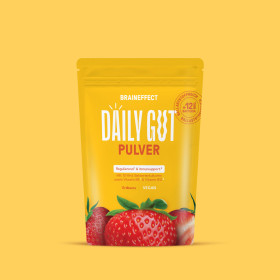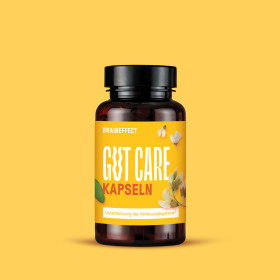
sleep good and strengthen the immune system
All this stress about the coronavirus doesn't let you sleep good? But especially now your immune system needs a good night's sleep. Learn here, our hacks for better sleep.

All this stress about the coronavirus doesn't let you sleep easily? But especially now your immune system needs a good night's sleep.
Learn here, our hacks for better sleep. You can't fall asleep at night? In the morning you feel like you've been hit by a truck? Corona stress, anxiety about what to do next, and inner restlessness plague you too?
Then it's high time to get some more sleep. Because relaxation is not only important for your muscles and brain, but also for your immune system. Researchers at the University of Tübingen and the University of Lübeck found that three hours of sleep deprivation can affect your immune system [1].
Table of content
BRAINEFFECT HACK: Our SLEEP SPRAY helps you fall asleep faster thanks to melatonin.
1. Sleep and immune system
Your defenses are closely linked to the duration and quality of your sleep. You probably know the feeling that when you have a cold, all you really want to do is sleep. One of the reasons for this is the messenger substances that are increasingly released during infections. T-cells are also among them.
The T-cells are the guardians of your immune system. If they sense a cell that is infected by viruses or pathogens, they immediately go into Defense Mode.
For this purpose, they activate adhesion proteins, the integrins. These are able to fight and destroy the pathogens.
Sleep is practically the biohacking tool for your T cells. It influences them positively. Current studies show that the number of defense cells increases during sleep. This ensures that infections can be fought more effectively and faster [2].
2. Eat yourself tired - 3 foods for your sleep
People who eat a healthy and conscious diet often sleep better. There are, however, some foods that are particularly good for your sleep.
Bananas: They contain tryptophan. Tryptophan is an amino acid from which the happiness hormone Serotonin is formed. This is the precursor of the natural sleep hormone Melatonin.
Dark chocolate (min. 75% cocoa content): Chocolate with a high cocoa content provides serotonin and polyphenols. The former serves the body for melatonin synthesis and the latter is an excellent antioxidant, which reduces oxidative stress. [2]
Lemon balm: The green plant reduces the effects of chronic stress such as anxiety, tension, and insomnia. [3]
3. Supplements for falling asleep
If you have problems falling asleep in the evening or if you work in alternating shifts, supplementation is definitely useful. Because in order to take up the sleep hormone through food alone, you would have to eat large quantities. For example, you need 62 pistachios for 1 gram of melatonin. In the following you will find out which supplements are suitable:
Melatonin: The natural sleep hormone is significantly involved in your sleep quality and sleep duration. By supplementing with melatonin you can shorten your time to sleep. Because falling asleep faster at night is the basis for a good recovery and fresh performance during the day.
Magnesium: The mineral calms the nerves, promotes muscle recovery, and improves the general quality of sleep. Especially if you are very active, you should make sure you have enough magnesium, as you lose it through sweat during sports, for example.
BRAINEFFECT HACK: Our SLEEP SPRAY it is your best buddy when it comes to falling asleep.
4. Conclusion
The saying "Sleep well" has its reason for being. Because too little sleep negatively affects your immune system. Here, supplements such as melatonin can help you in a targeted manner, and also herbal active ingredients such as lemon balm can have a supporting effect.
5. Sources
[1] https://www.medizin.uni-tuebingen.de/de/das-klinikum/pressemeldungen/153
[2] https://www.ncbi.nlm.nih.gov/pubmed/30755455
[3] Magrone,T.,Russo, M. A.,& Jirillo,E.(2017).Cocoa and dark chocolate polyphenols: from biology to clinical applications. Frontiers in immunology, 8, 677.




